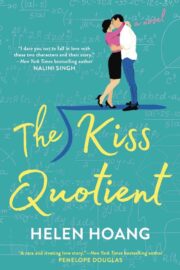As I read Rudy Simone’s book, I found myself looking back at my own childhood and remembering a million little things, like how someone at school told me my facial expression was scary, and I spent hours and hours afterwards practicing in the mirror. Or how sometimes I got through the day by mimicking my favorite cousin’s mannerisms and speech patterns because she was popular and that had to be the right way to be, only it was so exhausting. Or how I used to tap my fingers one-three-five-two-four over and over in that pattern when I was nervous or bored, but I realized it annoyed people, so I started doing it on my teeth so no one could see or hear, and now I have early onset periodontal disease, but I can’t stop to save my life. Or the George Winston obsession that led me to teach myself to play the piano when I was a tiny thing and is still going strong decades later. Or, or, or . . .
What started as mere research for a book became a journey of self-realization. I learned that I am not alone. There are other people just like me and very possibly my daughter, too. As I pursued and eventually attained a diagnosis (at age thirty-four), Stella, my autistic heroine, was born on the page. It has never been so easy for me to write a character. I knew her intimately. She came from my heart. I didn’t have to filter my thoughts to make her socially acceptable, something I’d been unconsciously doing for ages. And this freedom allowed me to find my voice. Before this, I’d been using every other author’s writing style, trying to be someone else. When I wrote The Kiss Quotient, I became myself, and I’ve been unapologetically myself ever since. Sometimes instead of confining you, a label can set you free. At least, that was the case for me. I’ve started therapy to help with struggles I hadn’t known were common to people like me.
That said, I feel the need to point out that everyone on the spectrum has their own valid experiences, impairments, strengths, and points of view. My experience (and, therefore, Stella’s) is just one among many and cannot be taken as “standard.” There is no standard.
For interested parties, I found the following resources on autism spectrum disorder and Asperger’s to be informational but not boring:
Aspergirls by Rudy Simone (geared toward women)
Everyday Aspergers by Samantha Craft (geared toward women)
Look Me in the Eye by John Elder Robison
The Reason I Jump by Naoki Higashida
YouTube videos featuring clinical psychologist Tony Attwood
Autistic Women’s Association (facebook.com/autisticwomensassociation)
All the best,
Helen Hoang
DISCUSSION QUESTIONS


"The Kiss Quotient" отзывы
Отзывы читателей о книге "The Kiss Quotient". Читайте комментарии и мнения людей о произведении.
Понравилась книга? Поделитесь впечатлениями - оставьте Ваш отзыв и расскажите о книге "The Kiss Quotient" друзьям в соцсетях.